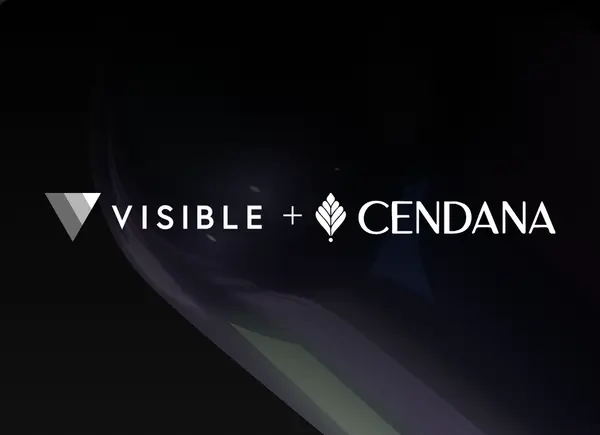Over the last 5 years at Visible we have heavily invested in creating a blog and curating resources in our weekly newsletter to help give founders an edge. We’ve decided that it is time to test a new medium at Visible so we launched the Founders Forward Podcast (learn more about the actual podcast here).
About Lindsay
Podcasting is a medium we know can work so decided it was time to take the leap. Naturally, we thought there would be no better first guest than Lindsay Tjempkema, CEO and Founder of Casted. Casted is the first and only podcasting platform built for B2B companies.
Our CEO, Mike Preuss, had the opportunity to sit down with Lindsay to chat all things podcasting. Lindsay offered countless tips and advice for founders and marketing leaders looking to start a podcast at their company. Give the episode a listen (below or on any podcast player) or check out our favorite takeaways:
Who is it for? Why are you doing it?
Before making the leap to start a podcast you need to understand (1) who is it for? And (2) why are you doing it? If you can answer those two questions, you’ll be able to find better guest, create better content, and overall have more success.
As Lindsay put it, “It’s just like any other form of content or any other approach to anything marketing related. Who is it for? Who’s my audience? What are they interested in? What do they want to know? What are the goals that you have for the show? What are you trying to achieve? Are you trying to build relationships? Are you trying to help people dive deeper? What’s your why? Because without those two pieces of information you’re going to try to appeal to everyone. Which when you try to please everyone, you end up mildly even entertaining at best anyone.”
In turn, the more dialed you have your who and why, the easier it is to measure. If you don’t know why you are doing something, it is almost impossible to measure. If you have a solid understanding of your audience and what your goals are, the leap into podcasting will be much less intimidating.
Fuels Other Content
A podcast can be a great source to inform your content roadmap and other content decisions. If you focus on having a great conversation with someone your audience wants to hear from, let the rest of the content flow from that. In turn, one conversation can make your content and marketing teams more efficient as they repurpose and reuse the original podcast.
https://website-staging.visible.vc/wp-content/uploads/2020/12/Lindsay-—-wring-out-podcast.mp4
As Lindsay went on to explain, “What areas could I dive into to create some supplemental written blog content? Is there a white paper here? Is there a way to equip my sales team to give them the insights and the perspectives and the quotes and the quips that I captured in this interview? Really think about what else you can do with that show because then you’ll be reaching people across other channels and giving them the opportunity to dig in across different formats to really engage in what you’re saying.”
Putting the energy and time into distributing your podcast is key to success. If executed properly, it can actually allow you to produce more content with less work.
Find the Right Guest
Going into the Founders Forward podcast, we were advised to “aim high” for our first set of guests. This would allow us to feature a big name and have an anchor for future guests. While Lindsay says this is certainly true, you also want to make sure you are having on the right “experts” for your field.
As Lindsay explains, “if your audience needs to hear about what it’s like to be new to the career force and just graduated from school, they’re going to want to listen to people who just finished their first two or three years of school. Which many of us would not think of as experts by the definition of famous people.”
No matter the field or guest type it all comes down to knowing who it’s for and why you’re doing it. By being able to answer these questions, you’ll be able to make sure you have the right guest for your audience.
Think in Seasons
One of the first questions someone may have when exploring a podcast for their company is, “how long should I give it?” How do you determine when you’ve had success? Is there a magic episode # where you should know or pivot by?
Lindsay likes to advise companies to think in seasons, not episodes. By thinking in seasons and allowing a set of episodes to be recorded and distributed you’ll be able to hear from your audience and make necessary adjustments and test new ideas. Regardless of how small the audience, you will have people listen in the first season. And you’ll make an impact on their lives in some way. Listen to these core listeners.
Give yourself seasons so you can take a pause, get feedback from your listeners, and make the necessary tweaks.
Creating an Internal Podcast
One of the unexpected tidbits we got out of Lindsay was how she and the team at Casted use podcasts internally. The first way is for their board meetings (which we wrote more about here). In short, Lindsay and the founding team records a quick snippet on the state of the business and sends it over to the board in advance of the meeting. Board members are busy and this allows them to ingest the necessary information before the meeting in an easy way.
The second way is their product notes podcast. After every product push, the product team leader records a quick podcast explaining the changes and why they made them. This allows for the entire company to be aligned around a new feature. When sales and marketing reps are hearing the decision making directly from the leader, they can better message and relay the product launch to customers.
All in all, podcasting can be an incredibly valuable tool for your startup and marketing efforts. To start, make sure you can define who your podcast is for and why you are doing it. From here, the options are endless for where you content can go.
We thank Lindsay for taking the time to chat with us. To learn more from other founders, leaders, and investors, check out the Founders Forward Podcast here.




